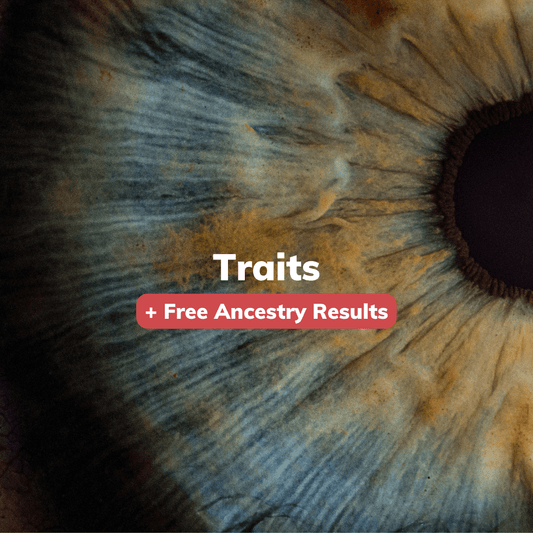
Risk for obsessive compulsive disorder (OCD)
Celine HaarhoffObsessive-compulsive disorder, commonly known as OCD, is a mental health condition characterized by intrusive thoughts, compulsions, or both. Some people may have a genetic predisposition to developing the disorder, and a genetic test can help identify this risk.
This article will discuss the genetic basis of OCD, its symptoms, and how a genetic test can help diagnose and manage the condition.
OCD is an anxiety disorder affecting approximately 2.3% of the global population. It is characterized by obsessions, unwanted and intrusive thoughts, images, or urges that cause distress and anxiety.
Conversely, compulsions are repetitive behaviors or mental acts that a person feels driven to perform in response to their obsessions. These behaviors or mental actions are performed to reduce the anxiety and distress caused by the obsessions.
People with OCD may have a genetic predisposition to developing the disorder. Several studies have shown that OCD has a strong heritability, with estimates ranging from 42% to 65%. This means that a significant portion of the variation in OCD risk can be explained by genetics.
One of the genes that have been linked to OCD is the serotonin transporter gene (SLC6A4). This gene provides instructions for making a protein that helps regulate the levels of the neurotransmitter serotonin in the brain. Serotonin is a chemical messenger that affects mood, anxiety, and other functions.
Another gene that has been implicated in OCD is the HTR2A gene. This gene provides instructions for making a protein that is involved in signaling the neurotransmitter serotonin in the brain.
Variations in the SLC6A4 and HTR2A genes have been associated with an increased risk of OCD and other mental health conditions such as anxiety and depression.
In addition to these genes, several other genes have been associated with OCD, including SLC1A1, NRXN1, and MAOA. However, the exact role of these genes in the development of OCD is not yet fully understood, and further research is needed to confirm their involvement.
The symptoms of OCD can vary from person to person, but some common symptoms include the following:
- Intrusive thoughts, images, or urges that cause distress and anxiety
- Repetitive behaviors or mental acts performed to reduce anxiety and distress
- A need for symmetry or exactness in everyday activities
- Intense distress when objects are not arranged in a specific way
- A fear of contamination or germs
- Excessive cleaning and hand washing
- Checking behaviors, such as checking the stove or locks multiple times
People with OCD may experience other symptoms, such as depression, anxiety, or difficulty functioning daily. These symptoms can be distressing and impair a person's ability to live a fulfilling life.
A genetic test can help identify a person's risk of developing OCD. Genetic testing involves analyzing a person's DNA to identify gene variations associated with a particular condition. For OCD, a genetic test can look for variations in the genes SLC6A4, HTR2A, and other genes that have been linked to the disorder.
If a genetic test reveals that a person has the predisposing gene variations, it does not necessarily mean they will develop OCD. It only indicates that they have a higher risk of developing the disorder.
However, this information can be helpful for a person and their healthcare provider to monitor their mental health and take steps to prevent or manage the condition.


